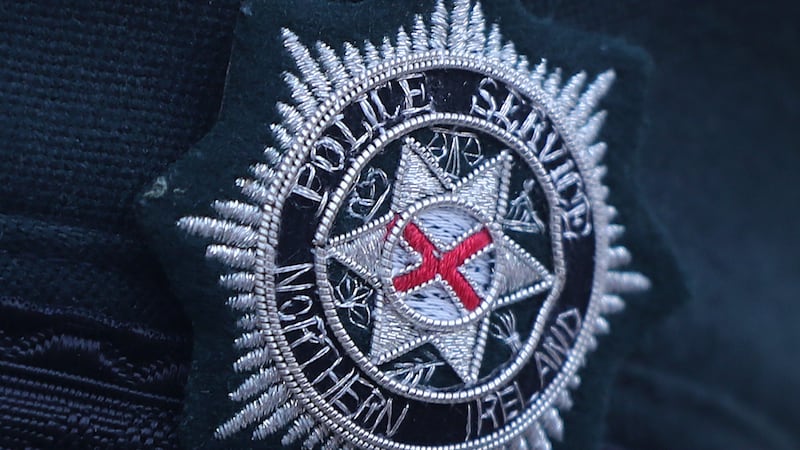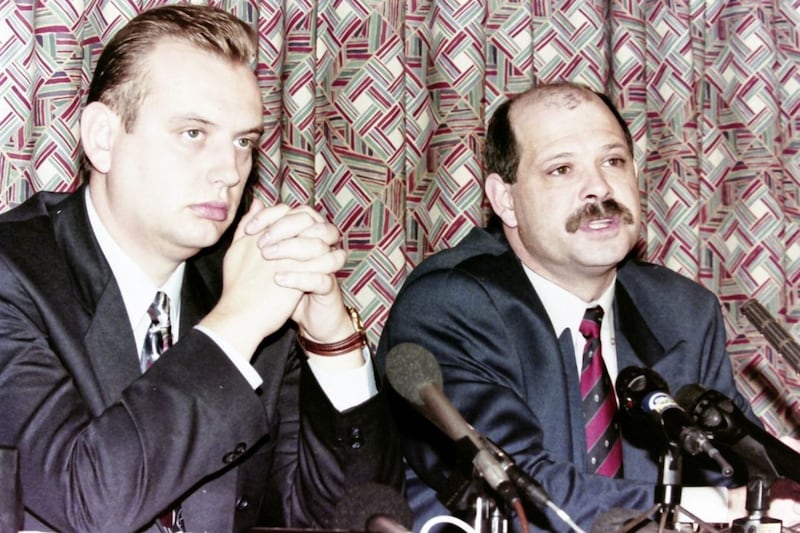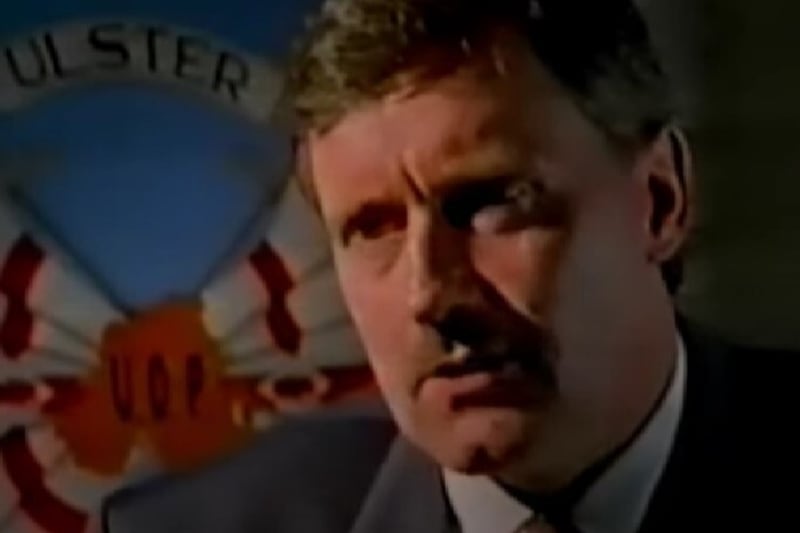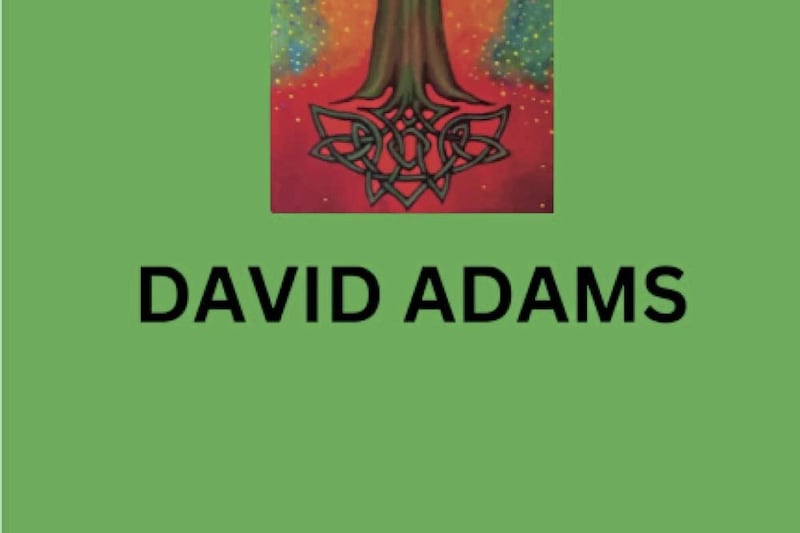How do we set about tackling the tribalism in Northern Ireland that has led to us inflicting so much pain and misery upon one another? How do we begin to reconcile our differences to the point where, like any normal society, we simply consider ourselves as one people made up of different elements?
It is worth stating that there aren’t, in any genuine sense, 'two tribes' in NI – centuries of inter-marriage have seen to that – but this is how, for the most part, we have chosen to arrange ourselves, and it is on that basis we must address the problem.
The notion that Irish history can assist in reconciliation might seem strange, given that our obsession with history has helped create the situation we’re in. However, each side has only ever obsessed about the bits of history that fit with its own tribal narrative.
We need to look at Irish history in its entirety and, crucially, through the lens of 'the other' to help us understand why grievances, fears and attitudes still exist. Only by understanding, in an emotional as well as intellectual sense, how history impacted on others can we begin to empathise with our neighbours. This requires the likes of me, from a Protestant/unionist background, to reflect upon colonialism and all the terrible injustices that flowed from it.
Read more:Joe Brolly launches another foul-mouthed attack following Mickey Harte appointment as Derry manager
As with every other colonised nation, the native population of Ireland were viewed by the colonisers as racially, culturally, intellectually, and morally inferior. This thinking allowed for the murderous land-grabbing, the Penal Laws, the Protestant Ascendancy, famines, poverty, violence, and much, much more, to be inflicted upon them.
For centuries, Irish Catholics were banned from the legal professions; had restrictions placed upon the inheritance or bequeathing of land; were not allowed to bear arms; to practice their religion publicly; or to speak their native language. Alongside these were innumerable daily insults and humiliations.
It is easy for a reasonable person to imagine how those on the receiving end must have felt. And to understand why a deep anger and sense of injustice has travelled down through subsequent generations. Add to this the anger and fear, the sense of hopelessness and abandonment, that northern Catholics must have felt at partition, as the rest of Ireland celebrated its independence.
Of course, there is another centuries-old story of fear, mistrust, anger and suffering to be taken into account, but that is for people from a different background to mine to consider. And what of our more recent past? Well, for a start, we must stop using victims of the Troubles as a tribal football. Selective memorialising, and the bitterness and anger it provokes, is too dangerous and divisive for a post-conflict society to indulge in.
We should be thinking in terms of something to remind us and future generations of the human cost of division and conflict. Something to act as a warning, as much as a commemoration. I would suggest a similar structure to the Vietnam Memorial Wall in Washington. Large and imposing, yet simple in design. Stark - very stark - where nothing takes away from the message it is meant to convey.
Upon this wall, in chronological order beneath each year, would be inscribed the names and ages of everyone who died as a result of the Troubles. There would be no mention of how they died; where they died; or what religious or any other affiliations they had. Only their name, age, and the date of their death. Above these names, in bold letters, would be one simple message – NEVER AGAIN. And where to erect this monument? Nowhere would be more fitting than just inside the entrance to Stormont.
We need also to seriously address the continued separation of our children and young people. In 1981 the first integrated school in NI, Lagan College, was founded by subscriptions from Catholic and Protestant parents. Disgracefully, 42 years later integrated education is still a distinct rarity here.
Of our 1,079 primary and post-primary schools, a mere 71 are fully integrated. Our children must learn beside one another. Be allowed, at the earliest opportunity, to get to know one another as human beings, and be facilitated in making friends and forming relationships across the divide. Every primary and post-primary school that receives state aid should be required to become genuinely integrated. Those that refuse should be left to find their own funding.
The almost complete lack of integrated social housing in Northern Ireland is, to my mind, an even greater contributor to tribalism. For decades, large sections of our people – across towns, city areas, and housing-estates the length and breadth of NI - have been growing up in mono-cultural, -political, -religious bubbles. Generation after generation has been exposed to negative generalisations and stereotypes of people they have never knowingly met - often peddled by those in whose interest it is to perpetuate division for political or other gain. Enormous damage is being done to children even before they, as young adults, begin to mingle in a world outside these mono bubbles.
We know why so many of our people became separated. But how do we begin to reverse that? Only by a genuine, sustained campaign to encourage people from different backgrounds to once again live beside one another. We must assure them that they will, at all times, be supported and protected in doing so. Future social housing should be built and sited with integration primarily in mind. Such a campaign would require multi-agency support and involvement, including from the PSNI.
Ultimately, we need to accept that only by getting to know one another again and coming to terms with our history rather than weaponising it, can we finally put the past behind us and begin to build a future worth having. If we choose otherwise, then we are choosing to continue passing down to subsequent generations a poisoned chalice of bitterness, hatred and division.
:: David Adams helped negotiate the loyalist ceasefire of 1994 and the Good Friday Agreement. He later worked in the media and for the Dublin-based international humanitarian organisation GOAL.







